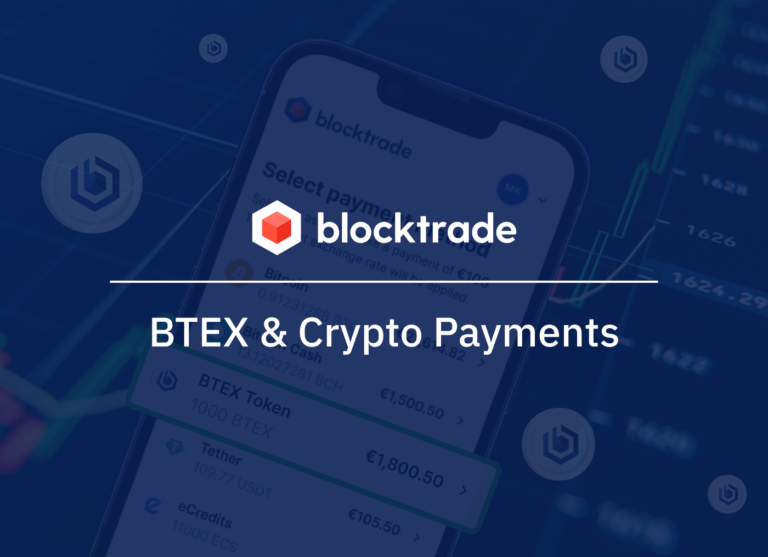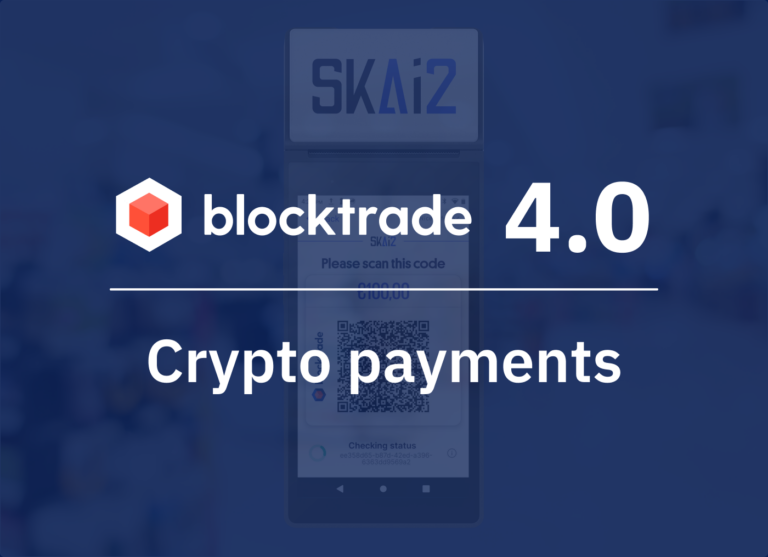After learning about traditional finance, gaining an understanding of blockchain and digital assets, we now reach the grand finale of this series: How Blockchain, cryptocurrencies and tokenization are changing the financial world for good. Let’s take a detailed look at some of the many areas where disruption is taking place:
Challenging the USD
With the United States still being the world’s biggest economy, the global economy is dependent on the USD as its reserve currency. In the worst case, this dependence can lead to economic shocks such as currency crashes, high inflation and debt burdens. In this context, the rise of cryptocurrencies is significant.
Over the years, there have been multiple attempts to ‘de-dollarize’ the global economy. Countries and governments have wanted to end the dominance of the US dollar. And to no avail, until Bitcoin was born. Cryptocurrencies seem to slowly but surely succeed in the de-dollarization process, changing the global economy and its future.
No use for the middlemen
To transfer a USD from one place to another, an intermediary is needed. It takes a lot of time to go through the verification of all the steps of the transaction. This can result in a costly and time-consuming process.
This is where Blockchain-based cryptocurrencies like Bitcoin pose such an attractive alternative. Due to their decentralized nature, they don’t require a middleman like banks, small financial companies and clearing houses to verify financial transactions and manage the flow of the currency. In the Bitcoin economy, the network users themselves are the middlemen.
Financial institutions perform the necessary function of keeping money safe and secure for people and therefore, the processes in place require a lot of mediators. The involvement of these mediators is what makes the industry more expensive. Moreover, with the involvement of too many people and manual processes, the likelihood of errors and fraud steadily increases. Transactions on a blockchain are verified by a consensus between all participating nodes and stored immutably through the application of cryptography. Together with respective smart contracts, transactions can be executed automatically, resulting in more secure, error-free and efficient (= cheaper) transactions and a superior customer experience overall.
A new era of crowdfunding
Crowdfunding describes the process of raising capital from a large number of parties with the little minimum investment required. In recent years, it has become especially popular amongst entrepreneurs and people who want to start small businesses as a way to boost their business development process.
With cryptocurrencies and blockchain technology, the crowdfunding process has been simplified. Nowadays, entrepreneurs don’t necessarily need business angels and venture capitalists to fund their projects.
In early 2017 a new trend called ICOs (Initial Coin Offering) arised. ICOs are similar to IPOs (Initial Public Offering), whereby companies hire underwriters to launch the company publicly after which its shares can then be traded openly on exchanges. The benefits of this are that the investor’s shares become very liquid, and capital can be raised quickly. The downside is a very costly process that usually is only undertaken by larger companies. An ICO can be thought of as the cryptocurrency equivalent of an IPO, where instead of shares being issued, investors receive tokens. These tokens can have utility and provide a unique function such as offering the investor access to unique services/offers, or they can simply represent a stake in a company/project.
The downside here was the lack of regulatory framework governing ICOs. As such, they were much easier and cheaper to set up than IPOs and became very popular in 2017. Unfortunately, due to this lack of regulation, ICOs were mostly used by malicious actors and turned out to be fraudulent, stealing millions of dollars from investors.
STOs (Security Token Offering) arose as the solution for legitimate companies that wanted a regulated version of an ICO. It combines the blockchain technology with the requirements of regulated securities and are therefore more attractive to investors since the regulation provides them with confidence and assurance that they are investing in a legitimate venture. STOs are governed by strict legal frameworks and regulatory authorities thereby protecting investors. In comparison to ICO utility token, security token represent investment contracts in assets such as shares, funds or bonds.
ETFs
An exchange traded fund (ETF) is a type of security that holds a group of securities that often tracks an underlying index. However, ETFs actually can invest in any number of industry sectors or use various strategies. ETFs are in many ways similar to mutual funds; yet, they are listed on exchanges and ETF shares are traded just like ordinary stock.
Due to the growing popularity of cryptocurrencies, various financial institutions have started looking into issuing ETFs containing Bitcoin exclusively or a a part of its basket of investments. ETFs containing cryptocurrency a broader basket of assets like regular stocks or bonds would allow for combining an investment in cryptocurrencies with the ETF-inherent benefits of diversification and risk reduction. Crypto-ETFs would be especially appealing to institutional investors who are usually legally prohibited from directly investing in Bitcoin but may invest in diversified ETFs. Another benefit is the accessibility of the investment – rather than having to go and register with a specific cryptocurrency exchange, investors would be able to trade the ETF on the stock exchange and not have to worry about the risks associated with cryptocurrency wallets. For example, if an investor were to lose the password to their crypto-wallet, their cryptocurrency is then irretrievable, lost forever. There have been multiple attempts to create a Bitcoin ETF, but all have been denied by the U.S. Securities and Exchange Commission (SEC) and we may not see one for some years.
Some experts say that a Bitcoin ETF will lead to a more consistent pricing of bitcoin. Industry analysts and investment firms point out that Bitcoin ETFs would usher in a new era for beginning and inexperienced investors.
Other experts and some regulators don’t want Bitcoin ETFs to come about. Yet, given the growing interest from institutional investors, family offices and retail investors alike, Bitcoin ETFs are still likely to have a place in the future.
The birth of new payment methods
We represent the generation that was introduced to a new way of payment. While in times past, we’ve been used to paying with cash (physical money), nowadays, we can’t live without cashless forms of payment.
Developments in the financial system are not a new concept. Cryptocurrencies are a new payment method that has already been implemented in several countries. People in Russia, for example, can buy plane tickets, pay taxi fares and many other services with cryptocurrency.
Although cryptocurrency are currently rather used as an investment or trading instrument, they hold a real potential in being the new way we pay. An important benefit of using cryptocurrencies as a form of payment is that borderless/international transactions cause no extra fees. Since cryptocurrencies are decentralized, they know no borders. Lower fees are another benefit since there are often a lot of costs incurred with traditional payments methods, such as debit/credit card fees, merchant fees etc. With cryptocurrencies, fees could be as much as 60%-70% lower.
However, even with these benefits, a lot of people don’t feel comfortable with the idea of using something so seemingly foreign. This is where the aforementioned concept of a CBDC could be useful, potentially seen as the “best of both worlds”; using the innovative technology of blockchain to represent fiat currencies could make the transition from traditional methods of payment to cryptocurrencies more feasible. Another deterrent for most people is the difference in volatility between fiat currencies and cryptocurrencies, but as mentioned earlier, stablecoins may pose the solution to this problem.
A new project, formerly called Libra and now known as Diem, is seeking to issue its own stablecoin in 2021, and with Facebook’s backing, if it is successful, it will be the first cryptocurrency backed by one of the big five tech companies.
Another project, called eCredits is currently developing a cryptocurrency with a strong emphasis on user-friendliness, aiming to afford access to as many people as possible with intuitive usage through features such as smartphone payments. This project is a good example of how blockchain technology and cryptocurrencies could soon become part of our day-to-day lives.
Meanwhile, cryptocurrencies continue to grow in price and size. Knowledge of Bitcoin, Litecoin, Ethereum, and others is spreading and no longer a topic limited to discussion among experts. By making payments simpler, faster and cheaper than before, cryptocurrencies are simplifying and impacting our lives.
The potential and (current) limitations of cryptocurrencies and tokenization
Blockchain technology is rapidly making inroads in many industries and there is huge potential to eliminate intermediaries and improve efficiency.
While blockchain is most famous for its role in facilitating the rise of digital currencies over the past several years, there are also many other non-cryptocurrency use cases for this technology. Indeed, some blockchain proponents believe that the technology could far outpace cryptocurrencies themselves in terms of its overall impact on the world. They believe that the real potential of blockchain is only just beginning to reveal itself. As such, it is likely that financial advisors and many others in the world of investment will come across blockchain technology more and more over the years to come.
Cross-Border Payments
Traditionally, the transfer of value has been both expensive and slow, especially for international payments. One reason for this is that, when multiple currencies are involved, the transfer process usually requires the involvement of different banks in multiple locations before the intended recipient actually receives his/her funds. There are existing services to help facilitate this process in a faster way, yet these can be costly.
Blockchain technology has the potential to provide a much more efficient and cheaper alternative to traditional cross-border payments methods. Indeed, while typical money remittance costs could be as high as 20% of the amount transferred, blockchain may allow for costs at just a fraction of that, as well as guaranteed and real-time transaction processing speeds. There are issues to be overcome, including regulation of cryptocurrencies in various parts of the world and security concerns, but still, this remains one of the most promising and discussed topics of blockchain technology application.
Smart Contracts
Smart contracts are often seen as a highly powerful application of blockchain technology. These contracts are basically computer programs that can oversee all aspects of an agreement, from facilitation to execution. When its conditions are met, smart contracts can be entirely self-executing and self-enforcing. For advocates of smart contracts, these tools provide a more secure, more automated alternative to traditional contract law, as well as an application that is faster and cheaper than traditional methods.
Potential use cases for the application of smart contracts are limitless and could extend to almost any business field in which contract law is required. Within the world of finance, smart contracts could be used to monitor the status of derivatives contracts and execute them once the necessary conditions are met. An example of where smart contracts could be applied outside of finance is in politics. Especially after the recent allegations of voter fraud in the 2020 US presidential election, smart contracts could facilitate an electronic voting system, whereby the record of all votes is stored immutably on the blockchain, making any fraudulent activity impossible. Obviously, smart contracts are not a complete substitute for old-fashioned diligence. Nonetheless, smart contracts remain one of the most promising ways that blockchain technology has already extended beyond the cryptocurrency space and into the broader business world.
Identity Management
One of the biggest problems of the internet age has been identity security. As careful as many individuals and organizations are in maintaining their online identities and securing personal information, there are always those looking to steal and profit off of these digital items. Blockchain technology has already demonstrated its potential for transforming the way that online identity management takes place.
Blockchain offers a tremendous level of security. In the case of digital currencies, this verification is used to approve transaction blocks before they are added to the chain. This mechanism could also easily be applied to other types of verification procedures, including identity verification. For instance, blockchain technology could provide a solution to this problem by enabling people to store data on a blockchain, rather than servers which can be hacked. Information, once stored on a blockchain, is secured cryptographically and cannot be altered or deleted, thus making massive data breaches nearly impossible.
The applications for blockchain and identity management are wide-ranging. For instance, blockchain could potentially be used to aid in maintaining voter information and ensuring proper functioning of the electoral process. Blockchain could be used to securely and efficiently transfer user data across platforms and systems. The technology could also be used to maintain and protect records of real estate ownership, titles, and more.
Supply Chain Use Cases
For many businesses across different industries, a well-functioning, efficient supply chain is imperative. Blockchain technology has already been used in multiple industries as a means of monitoring the status of supply chains and ensuring their efficiency. This could eliminate manual work and the potential for human errors from a complicated and crucial process. There are several ways in which smart contracts can improve the workflow within supply chains. For example, with smart contracts there will be greater transparency into the origin of consumer goods, asset tracking will be made easier in real-time, and there will be an enhanced licensing of services, products, and software.
Conclusion
With cryptocurrencies making middlemen redundant, it is easily foreseeable that this form of currency can pave the way to a much faster, more streamlined, and cost-efficient method of facilitating transactions. In fact, this change is already being effected, and as such influencing the global market. As a result, the US dollar’s strangle hold on the world economy is loosening in the wake of the crypto-boom, and a new technology is clearly shaping the future and in more than just the realm of finance.
At this point, blockchain is a technology with an enormously broad potential. Although blockchain is most famous for its connections to the ever-growing cryptocurrency world, various other applications have already been explored. As such, whether you are directly involved in the field of digital currencies or not, it is becoming more and more essential to develop an understanding of blockchain and how it may be used to transform the business and investment world.
That being said, the influence of cryptocurrencies on the global market is still relatively small when compared to the market as a whole. But the way that it does make an impact is worth considering as it gives us an idea about where cryptocurrency is headed.
Blockchain technology has become a part of applications and processes across many industries such as identity management, smart contracts, supply chain management, and much more. The full potential and effects of blockchain technology on the financial and non-financial world remains to be discovered. It is very well possible that blockchain technology will ultimately be seen as the most important revolution to come out of the cryptocurrency boom.







